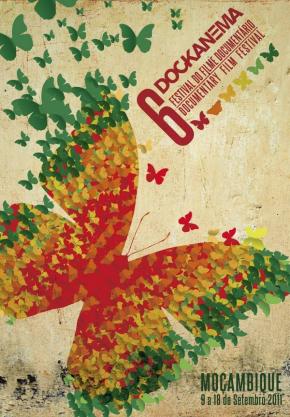Dockanema 2011
 “At the opening of the 1st edition of Dockanema in 2006, I remember using a quote from the Chilean director, Patricio Guzman, “A country without documentaries is like a family without photographs”. I really like the idea of documentaries safeguarding the memories of a people, a country, a community, a family. To this day I draw inspiration from that phrase for each edition of this festival.
“At the opening of the 1st edition of Dockanema in 2006, I remember using a quote from the Chilean director, Patricio Guzman, “A country without documentaries is like a family without photographs”. I really like the idea of documentaries safeguarding the memories of a people, a country, a community, a family. To this day I draw inspiration from that phrase for each edition of this festival.
This year, as we embark on the sixth edition of Dockanema, my purpose is also one of remembrance, so that we do not forget the importance of documentaries in our society, and above all in our collective memory.
To reaffirm this purpose once more, there could be no better choice for the opening of the 6th Dockanema than the Patrício Guzman film Nostalgia da Luz, in an edition intended to pay homage to the master filmmaker Ruy Guerra.
The early films of Patricio Guzman were shown in Mozambique soon after independence and he is one of the few film directors whose complete cinematographic works have been shown in our country. I chose “Nostalgia for the Light” because it is, in my opinion, the best example we have of the documentary as the memory of a people.
Ruy Guerra is part of the history of cinema in this country and the homage paid to him by Dockanema is somewhat overdue.
This all takes me back to the idea of memory, to closing the circle, from where we were when we began watching and experiencing films to where we are now, but mainly what we felt then and what we are feeling today.
At a time when people are speaking more and more about the idea of a creative economy as a possible alternative for development in Mozambique, I wonder if, in the course of all the current cogitation, the role and function of the audience, that is to say the prime consumer of our cinema, do not tend to be ignored.
We must remember that the very heart, the essential purpose of the creation of a national film industry then was to give the Mozambican public the opportunity to view and identify with these images. Much has changed since those days, but any strategy that fails to encompass this fundamental need is destined to flop.
Furthermore, we must rethink the models for organising the development of cinema in Mozambique. I believe that we have to forego the luxury of thinking about productions without having serious and sustainable alternatives for distribution. I also think that new ideas based on old models are not going to achieve the desired effects.
Our collective memory should still remember that the filmmaker Ruy Guerra worked hard so that the country could by now have a public system that would give people access to Mozambican cinema, which at that time was in its infancy.
And to answer the question that I am asked every year: there is nothing new in this edition. Our objective remains the same, our targets are the same: to show the best of what is being made in Mozambique and in the world, new ways of looking at things and of working; and also to provide opportunities for more contact between Mozambican and foreign film-industry professionals.
Finally, taking stock of the last few years, I would like to hail the growing visibility that Dockanema has given to Mozambican documentary films. Congratulations also go to the various cinema initiatives that are organised regularly in our country. I am referring to the film shows at the Núcleo de Arte and Arte no Parke, to the KUGOMA festival of short films and the CINEMAMEU festival in Inhambane. Support for such democratisation of culture, in this case documentary films, is the reason why, every year, we hold Dockanema.”